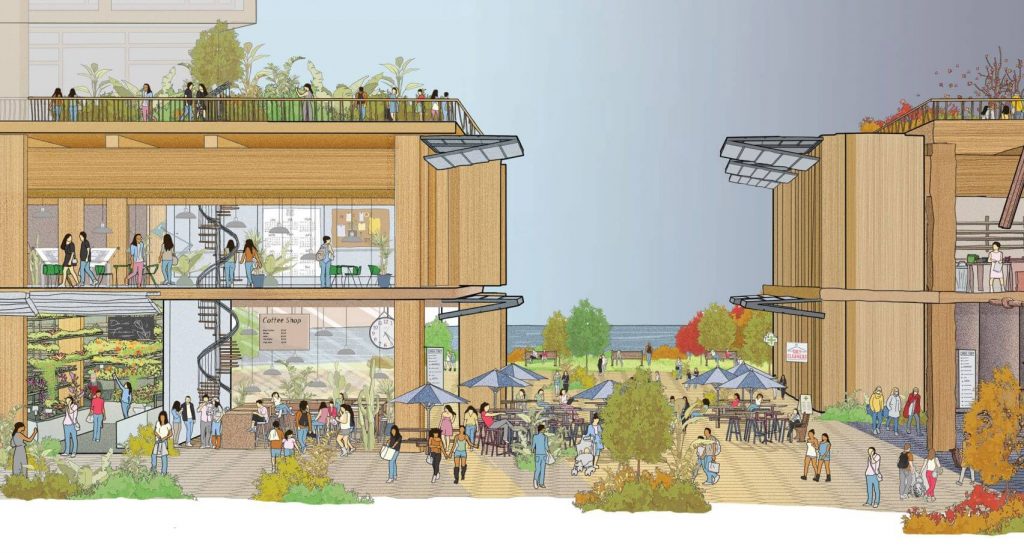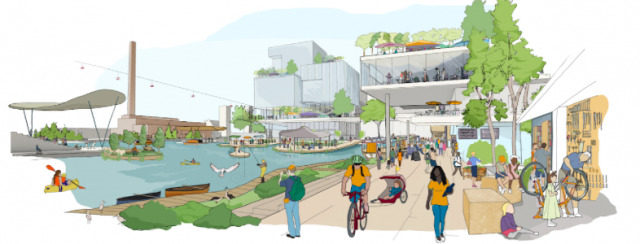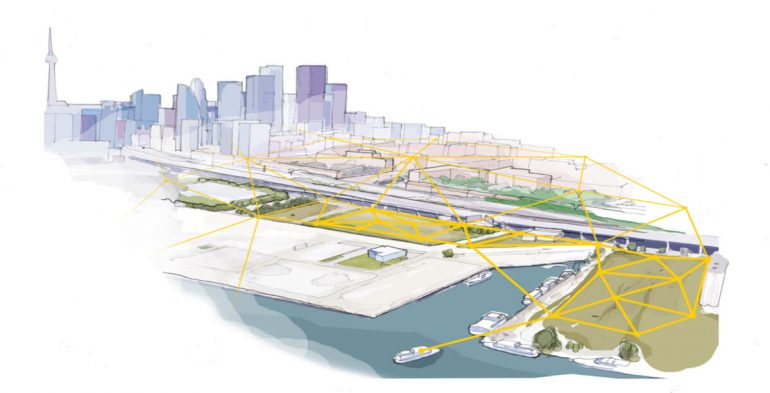The privacy commissioner of Canada agrees with Ontario’s Auditor General that all levels of government need to review Sidewalk Toronto’s smart city project, Quayside.
In emailed statements to MobileSyrup on December 6, Daniel Therrien’s office said that the project “clearly is a very innovative project that raises many privacy issues. [The] government should absolutely monitor its design to ensure that privacy rights are respected.”
“[The] government should absolutely monitor its design to ensure that privacy rights are respected.”
– Privacy commissioner’s office
Ontario’s Auditor General Bonnie Lysyk tabled her 2018 report on December 5, and for the first time publicly said there were concerns in her office and among government officials with the insufficient timelines given to sign off on the project.
The Alphabet-owned Google affiliate began working with Waterfront Toronto after in October 2017. The Waterfront Toronto board of directors later approved a Plan Development Agreement (PDA) with Sidewalk Labs in July 2018.
As a result of the 58-page PDA, Sidewalk Labs said that it would invest approximately $40 million USD (roughly $52.87 million CAD) to develop the Master Innovation and Development Plan (MIDP). Of that total figure, Sidewalk Labs set aside $2.6 million USD (approximately $3.52 million CAD) to examine legal, regulatory and policy issues, including data privacy and digital governance.
Lysyk’s recommendation was for all levels of government to look into the project and get more information on Sidewalk Labs’ plans and whether the project should include some level of provincial oversight.
Therrien’s office said that the “Commissioner agrees,” and that his office was monitoring developments and has been proactively engaging with Sidewalk Labs’ officials since May.
“We also hope the advice we provide will be helpful as other smart city initiatives pop up across the country,” Therrien’s office said, adding that the office is “committed to an advisory role in providing “practical and specific advice” on anything relating to privacy.
“To date, discussions with Sidewalk Labs have been general in nature. We look forward to Sidewalk Labs sharing details of this project so that our office can provide specific advice on privacy protection,” Therrien’s office said.
The office noted that the project raises many questions with respect to data collection, privacy, where the information will be stored and how it might be stored.

Sidewalk Labs meets commissioner once a month
Sidewalk Labs has, to date, remained mum on how it plans to collect user data, but said it would collect data from sensors while residents are in the community, and that could come from traffic signals or garbage bins.
Sidewalk Labs told MobileSyrup on December 5 that it was “committed to working with all three levels of government to be responsive to any issues of concern.”
On December 12, a spokesperson confirmed with MobileSyrup that the company meets with the Business Advisory Directorate at Therrien’s office monthly.
“We’ve had discussions that are general in nature. As our plans become more concrete, we’ll share more details and we look forward to receiving more detailed feedback,” the spokesperson said.
The spokesperson said that a draft of the MIDP is being worked on and is expected to be released to the public in early 2019.
“At that time, it will fall to [the] government to assess our proposals and decide whether they have merit,” the spokesperson said.
Sidewalk Labs released a proposal in October arguing for the creation of an independent Civic Data Trust to control urban data.
On December 9th, 2018, the Canadian Press reported that several critics were calling out Sidewalk Labs for not being transparent enough with its plans on privacy.
Meg Davis, Waterfront Toronto’s chief development officer, said to the Canadian Press that more details were going to be included in the draft plan but that before it could be released to the public it had to be approved by the organization and the government.
“We don’t want to get people’s hopes up for something that is a pipe dream,” she said. “We will be reviewing it first and giving feedback and then making it public.”
The Canadian Press reported that at a meeting for reporters on December 8, Sidewalk Labs said that data would be collected through the project but would not be sold or used for advertising purposes.

Sidewalk Labs conducting data collection trials
While discussions of privacy around data collection continues, alongside public consultations (the most recent one on December 8), Sidewalk Labs has already started conducting experiments in data collection.
The Financial Post reported on December 12 the company created a smartphone app called CommonSpace, in partnership with the Thorncliffe Park Women’s Committee.
The app tracks how people are using the R.V. Burgess Park, which is located in the Thorncliffe neighbourhood of Toronto. The purpose of the app is to figure out how to make the park a more welcoming space for more people to use.
Sabina Ali, chair of the committee, told the Financial Post that volunteers use the app and the app collects data such as who uses the space, the person’s approximate age, gender, and what they were doing.
Sidewalk Labs made a Responsible Data Impact Assessment (RDIA) on September 19th, 2018, but it was not made public until December 7, 2018. The Post indicated that the delay in publishing date violates Sidewalk Labs’ proposal for urban data collection standards published in October.
“RDIAs would have to be filed with the Civic Data Trust before the collection of urban data takes place, and they would be made publicly available — to create transparency and help hold companies and agencies accountable,” the standard reads.
The Financial Post article did note that Sidewalk Labs’ never made a public announcement about the project before it happened, so it is possible that no one knew data was being collected.
The RIDA said: “Individuals being observed are not explicitly notified of a study being conducted, but surveyors are trained to answer questions about the study when asked.”
The Financial Post also indicated that the RIDA was not specific to Sidewalk Toronto’s smart city project, but it could be an indication of how it might collect data like cameras on streets, in-pavement sensors, and licence plate readers to track vehicle movements.
This article was originally published on MobileSyrup.


